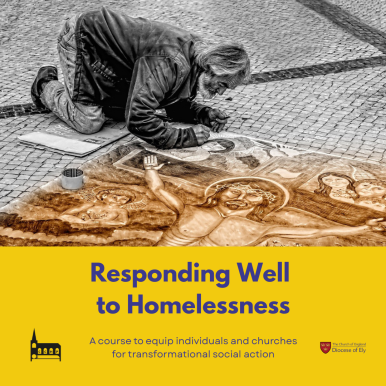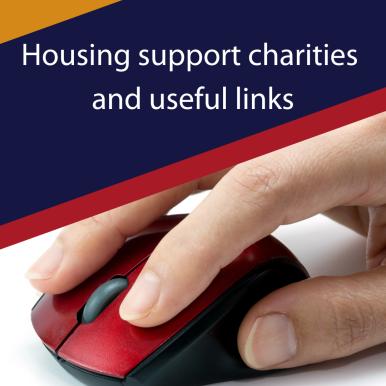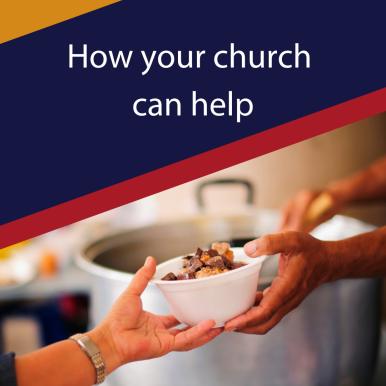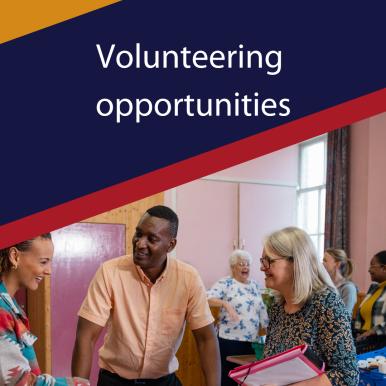
An overview of how churches can act to help those who are homeless.
The Diocese of Ely recognises the scope and complexity of the growing homeless crisis in our country.
We recognise the role that churches are increasingly playing as they seek to demonstrate the love of God at work in our communities.
Bishop's Officer for Homelessness
There is a Bishop's Officer for Homelessness to help equip churches to respond creatively to issues of homelessness and to develop a ministry within the homeless and street-life community.
This post is funded by the churches of Cambridge South Deanery as well as generous donations from individuals, university colleges and other congregation.
If you would like to know more, please email Homelessness.advisor@elydiocese.org.
The Effects of Homelessness
On average, homeless people die at just 47 years old. People sleeping on the street are almost 17 times more likely to have been victims of violence. More than one in three people sleeping rough have been deliberately hit or kicked, or experienced some other form of violence whilst homeless.
Homeless people are over nine times more likely to take their own life than the general population.
Source: Crisis, December 2017
Government street counts and estimates give a snapshot of the national situation. An estimated 4,667 people slept rough on a given night in autumn 2024. This is a 20% increase on the 2023 estimate and a 164% increase on the 2010 estimate. The 2024 figure is slightly below the 2017 peak of 4,750. Rough sleeping is most prevalent in London and southern England, with 28% of the 2024 total recorded in London.
Source: Rough sleeping in England: Causes and statistics published
Misconceptions about Homelessness
This 6-minute video was made in collaboration with Cambridge Churches Homeless Project (CCHP) for Homelessness Sunday, featuring people sharing their lived experiences of Homelessness.
The complexities of addressing the issue
Responding to homelessness is not straight forward. It is not simply a case of finding suitable accommodation for someone, even if this were possible. Homeless people are some of the most vulnerable members of our community. They are far more likely to have been exposed to a breakdown in relationships in the family home; addiction; debt, violence and intimidation, domestic abuse and mental health issues.
People who are homeless typically face additional obstacles in life such as changes to the benefits system. People whose immigration status means they have no recourse to public funds (NRPF) and cannot claim benefits, including housing benefit. These and many other factors contribute to the ongoing marginalisation of homeless people in our society.
Jesus was born in a stable to a teenage mother, became a refugee and would have been "sofa surfing" throughout his ministry. Today we would categorise Jesus in his season of public ministry as one of the "hidden homeless". He and his disciples were dependent on the kindness of others to provide for their most basic needs.
Jesus directly challenged those in authority, power and influence when the law did not promote care and compassion for those at the margins.





